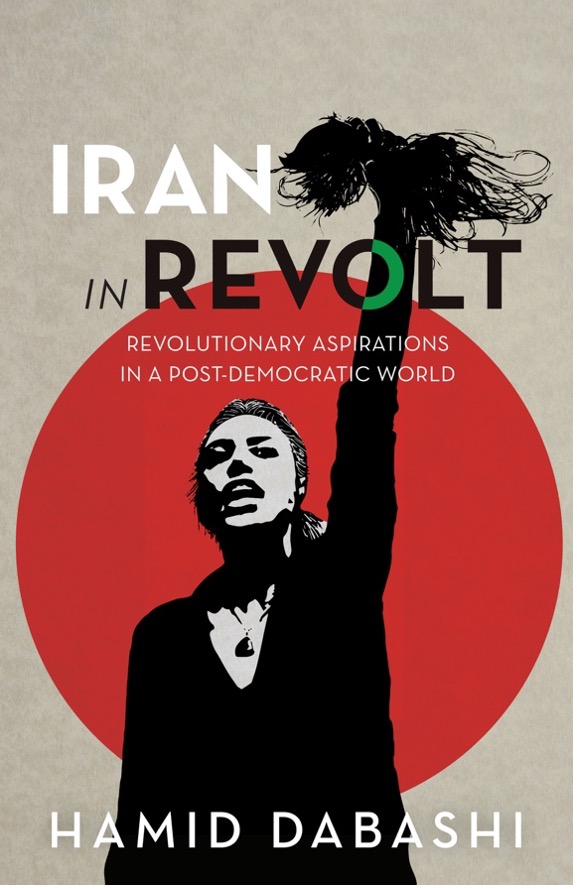In his retelling of the boldness and tragedy of the Zhina uprising in Iran, Hamid Dabashi asks: What constitutes the success of revolutions and how do we measure their failures?
In September 2022, a young Kurdish woman, Zhina Mahsa Amini, was killed in police custody for failing to observe the strict dress code imposed on Iranian women. Her death sparked a massive social uprising within and outside of Iran. The slogan, “Woman, Life, Freedom,” spread like wildfire from Amini’s hometown to solidarity protests held in London, New York, Melbourne, Paris, Seoul and beyond. The pain felt by millions of Iranians, caused by the Islamic Republic, was on the global stage again.
Yet, misreadings of the Zhina uprising—both accidental and insidious—began to proliferate, with different parties vying for power. Iran in Revolt by author and scholar Hamid Dabashi cuts through the white noise of imperialist war mongers and social media bots to provide a careful and principled account of the revolution, and how it has forever altered the nature of politics in Iran and the wider region.
Iran in Revolt argues that “democracy” and the “nation-state” are tired concepts, exploring what it means to fight for a just society instead. Through detailed political, philosophical, and historical analysis, Dabashi shows that the vulnerable lives and fragile liberties of nations have never been so intimately connected, just as the pernicious cruelties of ruling regimes have never been so identical as they are today.
Reviews
“Dabashi expertly combines philosophical rumination with sharp political analysis to ask probing questions about the state of our world in this learned study of Iran’s recent uprising.”
—Bill Fletcher, Jr., trade unionist, international solidarity activist and writer
“In this historical era of plutocratic global autocracy and livestreamed genocidal violence, Hamid Dabashi provides a forceful diagnosis of the present moment: we are living through a time in which there is no model of a truly democratic state anywhere in the world, even as ordinary people everywhere fight for a better tomorrow against the odds. Where does this leave would-be revolutionary social movements like the Zhina uprising in Iran? Dabashi argues compellingly that our best hopes everywhere is in small-d democracy that fights at local and grassroots levels against the illusory promises of the State. A provocative and penetrating analysis of our dire times.” —Golnar Nikpour, author of The Incarcerated Modern: Prisons and Public Life in Iran
“Reading Dabashi is like going for an extended coffee with a very smart friend.”
?Vijay Prashad, author of The Poorer Nations
“The grand clash of civilizations and ideologies will increasingly take place in the West, with such writers and intellectuals as Dabashi.”
?The Guardian
“A leading light in Iranian studies.”
?The Chronicle of Higher Education
Link to the Haymarket Books Page:



 Columbia University
Columbia University Aljazeera
Aljazeera Middle East Eye
Middle East Eye Springer Palgrave
Springer Palgrave